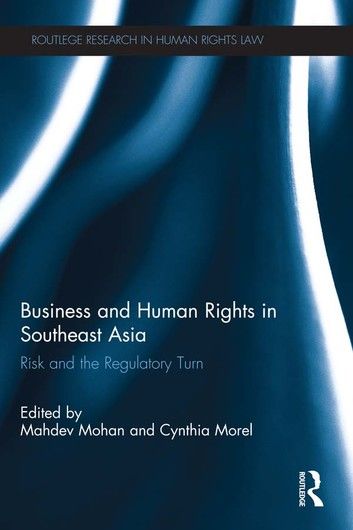Business and human rights has emerged as a distinct field within the corporate governance movement. The endorsement by the United Nations Human Rights Council of a new set of Guiding Principles for Business and Human Rights in 2011 reinforces the State’s duty to protect against human rights abuses by third parties, including business; the corporate responsibility to respect human rights; and greater access by victims to effective remedy, both judicial and non-judicial.
This book draws on the UN Guiding Principles and recent national plans of action, to provide an overview of relevant developments within the ASEAN region. Bridging theory and practice, the editors have positioned this book at the intersection of human rights risk and its regulation. Chapter authors discuss the implications of key case-studies undertaken across the region and various sectors, with a particular focus on extractive industries, the environment, and infrastructure projects. Topics covered include: due diligence and the role of audits; businesses’ responsibilities to women and children; and the mitigation of human rights risks in the region's emerging markets.
The book sheds light on how stakeholders currently approach business and human rights, and explores how the role of ASEAN States, and that of the institution itself, may be strengthened. In doing so, the book identifies critical challenges and opportunities that lie ahead for the region in relation to business and human rights. This book will be of excellent use and interest to scholars, practitioners and students of human rights, business and company law, international law, and corporate governance.









